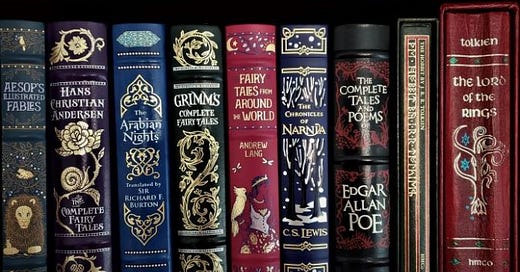Don't Deprive Students
Positive authentic encounters with quality literature will have lasting effects.
I had never experienced Yellowstone and the surrounding area until I was an adult. Upon visiting, I was in awe of the beauty and splendor. Planning a family trip out west so my children could see it for themselves was an immediate priority. I wanted them to personally encounter the vibrant colors, majestic mountains, and plentiful wildlife that roamed the stunning terrain. Of course, I showed them the hundreds of pictures I took while I was there but those did not do it justice. The pictures could never capture the real thing or fill them with the same sense of awe and wonder.
When I was finally able to plan the family trip to this beautiful area, my young adult children were hesitant. They loved the beach vacations we had always taken. They were familiar with the beach and comfortable with what they knew. The beach was easy. I reminded them how beautiful it was in different parts of the country, but they had never experienced it for themselves so they were reluctant. The moment they stepped off the plane and looked up at the Grand Teton mountain range, they were grateful I had forced them to step out of their comfort zone, and they finally understood my enthusiasm (obsession) with that part of our country over the years.
Recently, when a middle school English teacher was asked why a certain book containing graphic scenes of child abuse was being used in an eighth grade class, she stated that the students “really engaged” with it. She had been reading it in her class for the past six years and found the students “responded” to it. When the concerned parent inquired about them reading classic literature instead, she was told by the teacher that most of the students would not be able to proficiently read the classics so she chose less challenging contemporary literature. This book was easier.
There is so much about that conversation that is concerning, it is hard to know where to begin. First, the fact that a book describing, in detail, the sexual abuse of a first grade child by a grown man is what “engages” twelve and thirteen year olds is a major red flag. Second, that schools are choosing literature simply because students “respond” to it, is alarming. As much as I love and respect young readers, they are not always the most qualified or selective connoisseurs of quality literature. Next, that we would have an advanced eighth grade English class in a public school in America in 2022 that is incapable of reading classic literature is abhorrent. Finally, it is incredibly disheartening that an English teacher who has read and studied beautifully rich literature could, in good conscience, withhold that experience from her students knowing what they are missing out on. It would have been like me telling my children that taking them out west was too difficult but the pictures I took would adequately suffice as a substitute.
While there may be easier books to read to and with a classroom full of adolescents, those who have experienced the language, lessons, and lingering enjoyment from reading from the works of Dickens, Austen, Poe, Hawthorne, and Bronte, to name a few, should be hard-pressed to deny their students that opportunity. The contemporary books available to readers in that age range fail to challenge them in the same way. They only offer them more of what they already know, much like the beach vacations my children were comfortable with.
There are strategies to introduce such works into classrooms with reluctant readers or students who are not as proficient in reading as they should be. A teacher who is enthusiastic about these works will likely infect her students with a bit of that enthusiasm. It may take time and patience, but the classics are still read today for a reason. They have staying power because their themes are universal and the characters are timeless. The students will relate if you explain and demonstrate those elements.
Gourmet chefs who have tasted delicacies from around the world would never offer a Lunchable as a substitute for first-rate charcuterie and feel satisfied. People who have traveled to the amazing wonders of the world would never offer a postcard to someone and lead them to believe that it is a sufficient substitute. English teachers who have personally been enriched by the unique beauty of classic literature should not be satisfied with offering their students contemporary books that lack the same depth and quality. Doing so deprives students of an authentic meaningful experience they will carry with them for the rest of their lives.




Thank you for this beautiful insight.
Unfortunately, this is hardly new. When my now 44 year old was at Kammerer middle school, her advance program language arts teacher required the students to read an assigned number of books. Sounds good, except she told them it could be anything they wanted that she approved. Her criteria was only that they not be "too easy". With her approval, many of the kids decided that Stephen King books would be great. These were 7th graders. As you can imagine, my daughter joined with her classmates and chose one of his novels. I un-chose it. I had read a few and know that it was inappropriate. I gave her a reading list that I thought more worthwhile.
It’s much worse now and deteriorating.